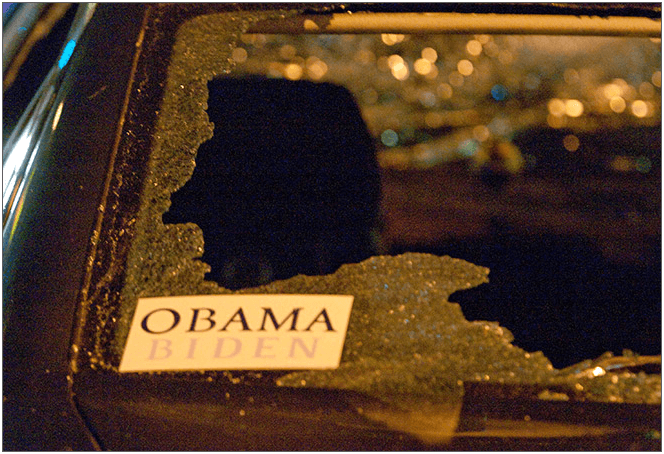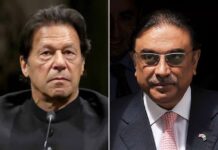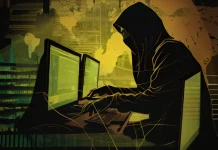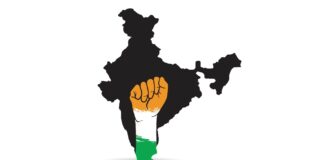BY TUFAIL AHMAD
The liberal global view prevailing in the world system has now been busted.
On 21 January, more than a million women marched in Washington and cities around the world to oppose the presidency of Donald J. Trump. In international politics, turning points are defined as irreversible events from where it is impossible to turn back. Before the women’s march, three events have occurred in recent years that indicate that the world system is going through an irreversible churn. The first was Narendra Modi’s election as India’s prime minister in 2014. The second was the Brexit vote in June 2016 in which the British people voted for Britain to leave the European Union. The third was Donald Trump’s victory in the November presidential elections.
All the three turning points came about in serious opposition to the established orders in these countries — defying forecasts of the mainstream media and wisdom of the established intellectuals and politicians like the then British Prime Minister David Cameron. In the process, these events exploded the entrenched worldviews of the sophisticates like journalists, professors, litterateurs and intellectuals. These sophisticates viewed Modi, Trump and pro-Brexit voters as rustic, vulgar and irresponsible.
The three events also reflected the disillusionment of masses left in the gutter of globalisation and at the receiving end of their politicians’ sympathies for identity politics and tolerance for the mainstream Islamism during the post-9/11 years.
Necessarily, masses in these countries used the established democratic institutions and processes to bring about these pivotal changes. As a result, intellectuals in Britain, women who joined the 21 January march in the US and award winners in India felt like a landed fish: they found it extremely difficult to breathe in the new and altered political atmosphere. In India, they called it “intolerance” — a political phenomenon not heard before. On the day Trump was sworn in as the US president, some of them also attacked shops and police vehicles in Washington. Popstar Madonna thought about assassinating Trump, noting: “I’m angry. Yes, I am outraged. Yes, I have thought an awful lot about blowing up the White House.” Oscar-winning Hollywood actor Robert De Niro declared his inclination to attack Trump — to “punch him in his face.”
So, the vital question is how to explain these developments around the world. The world system the people today live in basically emerged through the Peace of Westphalia in 1648, a peace agreement that ended the thirty years war during which the religious wars between catholic and protestant states had dragged the great powers of the time into it. As a result of this agreement, the modern nation-states were born based on the related principle of sovereignty whose premise was that a nation-state will not interfere in the internal affairs of another nation-state. This gave birth to a new world system in which nation-states, not the religious kingdoms, were members. This world system of nation-states has been anchored by the United Nations since 1945.
The world system the people today live in basically emerged through the Peace of Westphalia in 1648, a peace agreement that ended the thirty years war during which the religious wars between catholic and protestant states had dragged the great powers of the time into it.
The maturing of the world system of nation-states from 1648 through 1945 and after brought about a sophisticated worldview that can be called liberal. Although people’s opinions cannot be seen in binary oppositions of liberal and conservative, these terms nevertheless do help us comprehend the world system. At the risk of reductionism, it can be argued liberals are global citizens who interpret social reality and international politics coloured in their own viewpoint, which is hopeful, ought-to-be and promising rather than real. However, conservatives are pessimists who are rooted in culture and civilisation and interpret social reality and politics as it exists rather than as it ought to be.
Prior to the Westphalian peace agreement, approximately eight million people had died in a series of religious wars in Europe. Similarly, prior to the establishment of the United Nations in 1945, over 60 million people were killed during the Second World War which included the atomic bombings of Hiroshima and Nagasaki, and more than 38 million people were killed during the First World War. Amid this global carnage of human beings, it was inevitable that a hopeful liberal view emerged across the world, driven by Western media and intelligentsia. This hopeful liberal view took over universities across the world and ideas of secularism and global citizenship rather than narrow nationalism defined by passports. In this passport-less worldview, peace projects like the establishment of European Union thrived.

Riots in 2009 | Photo: Thomas Hawk/CC BY-NC 2.0
This liberal view, represented by Madonna and Obama, has run its course. It looks bankrupt because the global trade promoted by the advocates of this view leaves masses in several countries at economic risk while a few nations like China benefit. It looks bankrupt because politicians like Obama play a sectarian politics, notably by asking NASA to recruit and train scientists from Islamic nations. It looks bankrupt because Muslimism in India masquerades as secularism. In the US, it looks bankrupt because Obama-like politicians are out to change the system to suit their ideological viewpoint. It looks morally bankrupt because more than a million women who turned out to protest against the Trump presidency have largely sealed tapes on their mouth with regard to the question of Muslim women’s liberty and Islamic Sharia. In India, it looks bankrupt because politicians like Mamata Banerjee and Arvind Kejriwal as well as Bollywood stars like Shahrukh Khan and Karan Johar side with singers and actors from Pakistan, but not with the native originals.
The liberal view, represented by Madonna and Obama, has run its course. It looks bankrupt because the global trade promoted by the advocates of this view leaves masses in several countries at economic risk while a few nations like China benefit.
This liberal global view prevailing in the world system has now been busted. In India, it is more interesting to identify it through the concepts of nationalism and secularism. The liberal class of Indians views nationalism in its European sense — a sense in which nationalism was xenophobic, narrow and consequentially murderous, resulting in the killings of more than a 100 million people during the two world wars, including those who died due to diseases and malnutrition. Because the prevailing view of nationalism in India is European in its nature, India’s liberal intellectuals and editors deride and disparage Indian nationalism, which makes them love everything Pakistani because Pakistani is the only thing that can taunt Indian nationalism.
The liberal class of Indians views nationalism in its European sense.
However, this view is in contrast with the original and authentic Indian view of nationalism, the one derived from the pre-invasion era in which Indian civilisation stood for universal brotherhood embodied in a global village, known by the Sanskrit term VasudhaivaKutumbakam. While there are shades of opinion, this universal conception of Indian nationalism comes from the Vedic period and is unlike the narrow European view of nationalism. For this original view of Indian nationalism, you have to look much before the invasion of India by Alexander in 326 BCE. It must not be forgotten that India is the original contributor of the two concepts which the West propagates today: pluralism and co-existence. These principles originate from the Vedic, pre-invasion times.
Similarly, the concept of secularism that prevails among India’s intellectuals and journalists is also European. Because, the European kingdoms fought numerous religious wars, their intellectuals and writers also began to evolve the concept of secularism, which is seen in India in its limited view of communal harmony. It is interesting that the original European meaning of secularism — as a movement of ideas that reduces the influence of religious orthodoxies in people’s lives — is totally lost in India because any Indian intellectual and editor claiming to be secular essentially sits in the lap of Islamists. However, the Indian meaning of secularism as a kind of universalism and communal harmony with pluralism and co-existence as its defining principles is very much Indian and rooted in its Vedic civilisation.
It is interesting that the original European meaning of secularism — as a movement of ideas that reduces the influence of religious orthodoxies in people’s lives — is totally lost in India.
The world system, defined and dominated by the European view of everything from international trade to secularism and liberalism, has a hole, a big hole. This big hole is being filled by a new class of politicians who emerge through this big hole itself, advocating the trade interests of nation-states and authentic nationalism of their peoples, but essentially upholding the democratic constitutional institutions and processes through which their liberal predecessors have ruled over their peoples for intolerably long periods. It is interesting that after each of the three turning points discussed above, it is the liberal class of advocates like Madonna and De Niro who have expressed their lack of trust in the democratic institutions while the masses have happily used the system to bring about desired change.
Both Trump and Modi are external to the existing system in their countries and stand for reforming that system. Even Brexit was a vote for reform of the European system. In fact, it is relevant to point out that both the European Union and the United Nations look largely broken and in serious need of repair. Commenting on Donald Trump’s victory, Christopher Caldwell of the US magazine Weekly Standard wrote recently: “Perhaps the surprise is that it took as long as it did for a US politician to argue that, if the system’s leaders cannot be trusted to reform it from within, they must be ordered to do so from without.” The world system is indeed undergoing through a serious churn, which will take a few decades to reform and stabilise.












